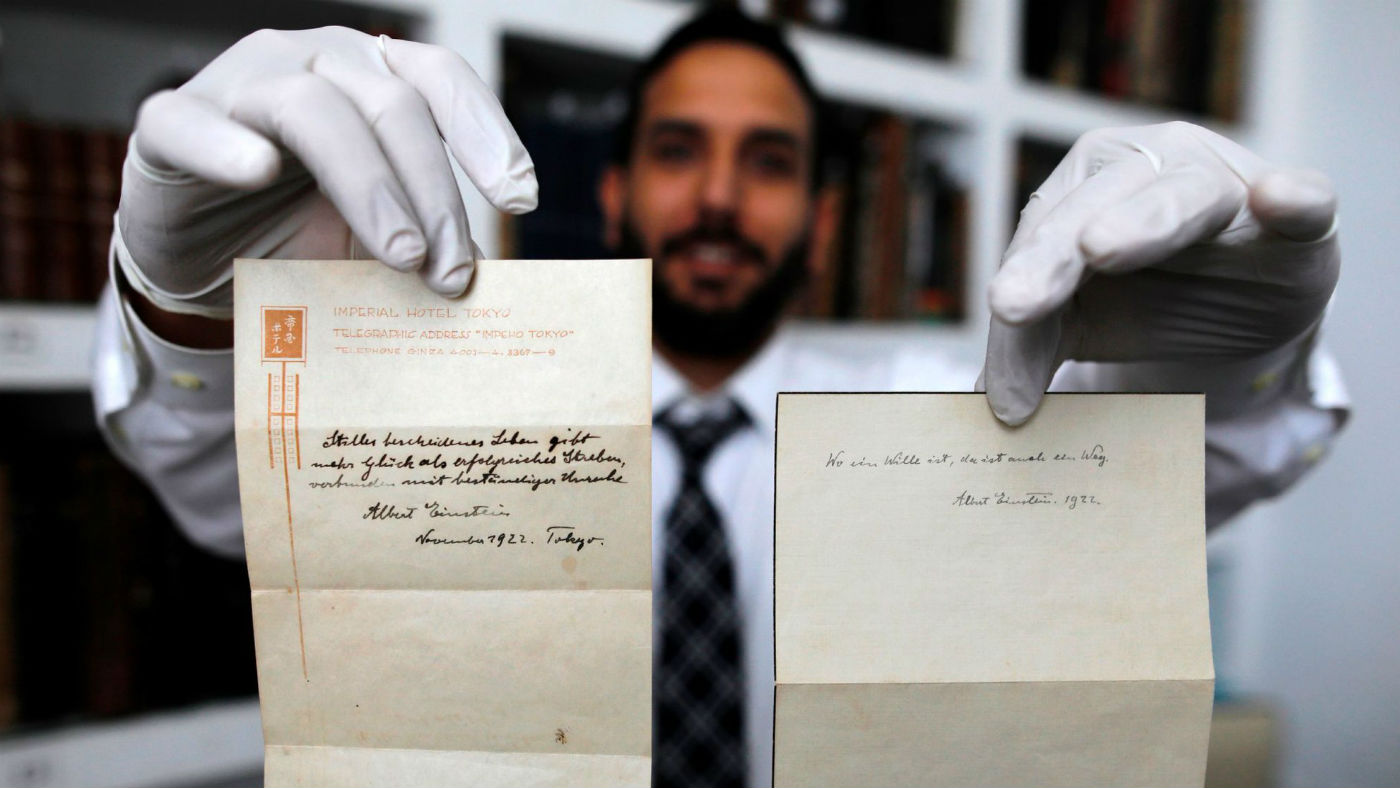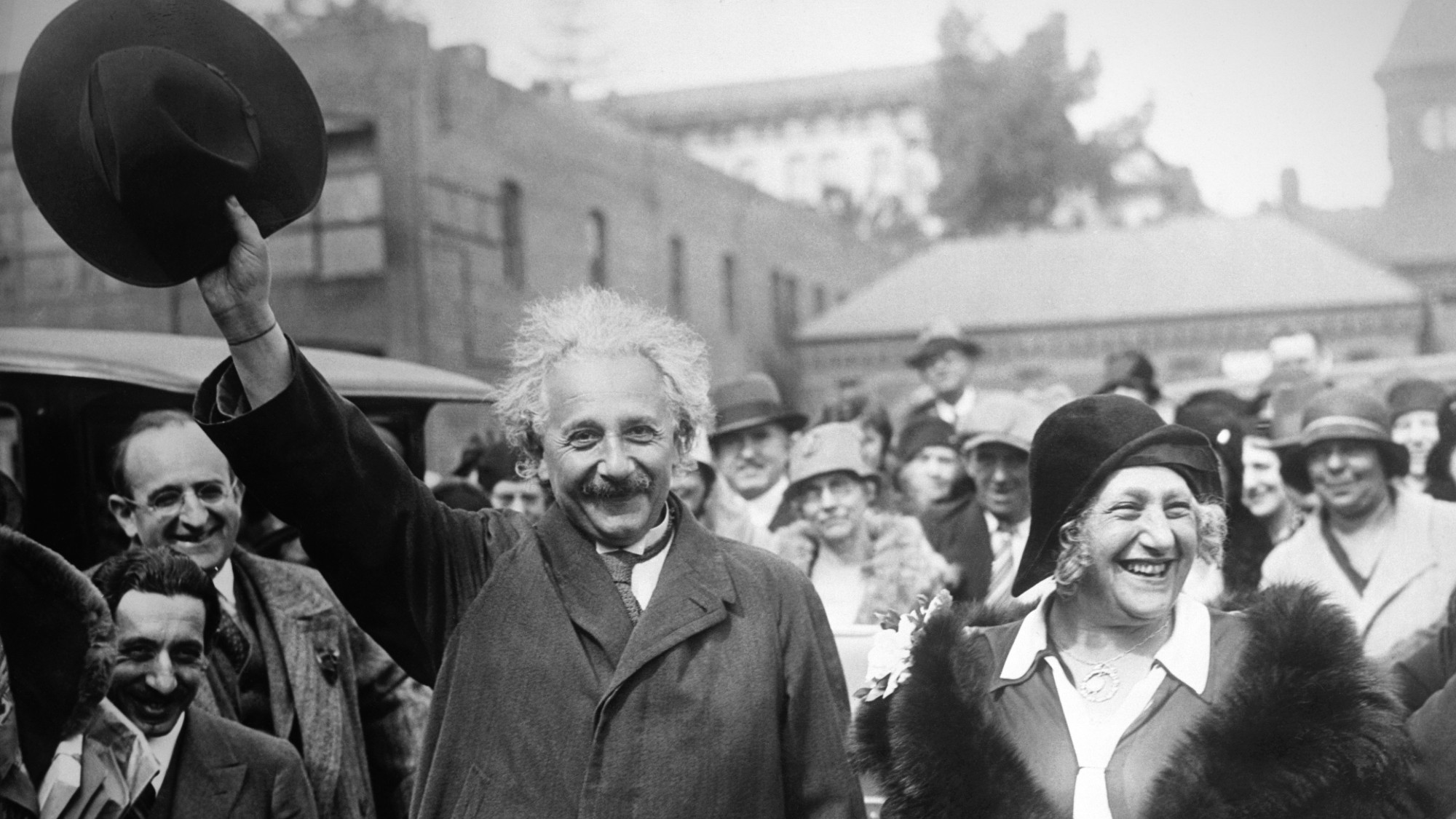Einstein’s handwritten ‘tips’ on happiness given to Japanese courier sell for $1.56m
Famed physicist's life theories break records in Israeli auction

A free daily email with the biggest news stories of the day – and the best features from TheWeek.com
You are now subscribed
Your newsletter sign-up was successful
The saying “money can’t buy happiness” has been given new meaning as two notes written by Albert Einstein describing his formula for a happy life have sold for $1.56m (£1.19m) and $240,000 (£181,000) at an auction in Jerusalem.
Einstein gave the first note to a Japanese courier in 1922, when he was in Tokyo on a lecturing tour after winning the Nobel Prize for physics, the BBC says.
The courier had delivered Einstein's mail, but the German physicist didn’t have any money to give the man a tip and instead gave him a signed note on Imperial Hotel Tokyo stationery, writing in German: “A calm and humble life will bring more happiness than the pursuit of success and the constant restlessness that comes with it.”
The Week
Escape your echo chamber. Get the facts behind the news, plus analysis from multiple perspectives.

Sign up for The Week's Free Newsletters
From our morning news briefing to a weekly Good News Newsletter, get the best of The Week delivered directly to your inbox.
From our morning news briefing to a weekly Good News Newsletter, get the best of The Week delivered directly to your inbox.
Note number two was written around the same period and reads: “Where there’s a will, there’s a way.”
“Maybe if you’re lucky, those notes will become much more valuable than just a regular tip,” Einstein told the messenger, the seller of the notes told the The Guardian.
Winner's Auctions and Exhibitions put an estimate of $5,000 to $8,000 (£3,700 to £6,000) on the first note. Bidding started at $2,000 (£1,500) and the sale lasted for 20 minutes, with the last two buyers bidding against one another by phone. The winner was a European who wished to remain anonymous.
Onlookers applauded when the sale was complete.
A free daily email with the biggest news stories of the day – and the best features from TheWeek.com
“It was an all-time record for an auction of a document in Israel,” a spokesman from auctioneeers Winner’s Auction said.
The BBC reports that the seller is thought to be the Japanese messenger’s nephew.
“I am really happy that there are people out there who are still interested in science and history, and timeless deliveries in a world which is developing so fast,” the seller said.
-
 The environmental cost of GLP-1s
The environmental cost of GLP-1sThe explainer Producing the drugs is a dirty process
-
 Greenland’s capital becomes ground zero for the country’s diplomatic straits
Greenland’s capital becomes ground zero for the country’s diplomatic straitsIN THE SPOTLIGHT A flurry of new consular activity in Nuuk shows how important Greenland has become to Europeans’ anxiety about American imperialism
-
 ‘This is something that happens all too often’
‘This is something that happens all too often’Instant Opinion Opinion, comment and editorials of the day
